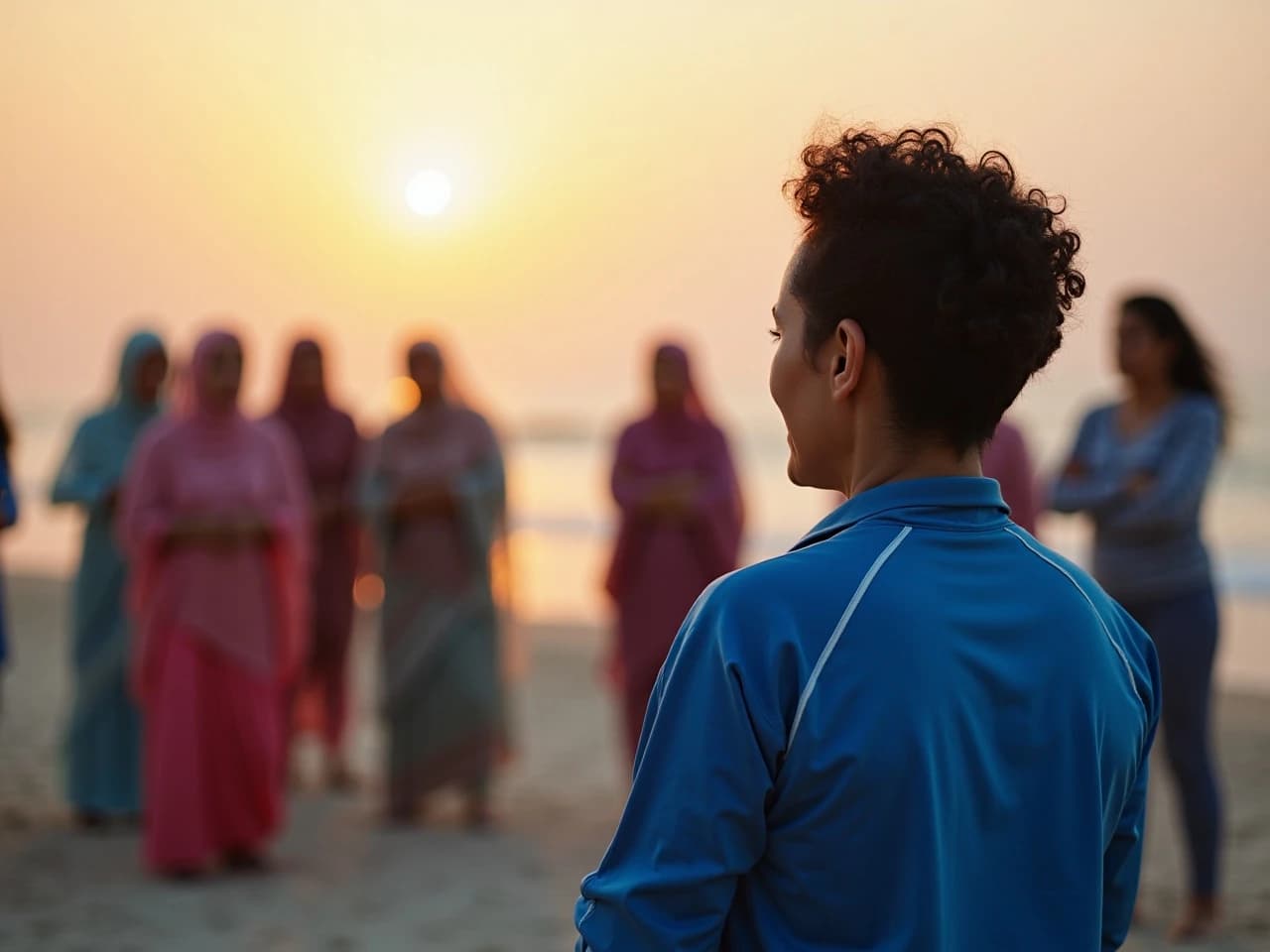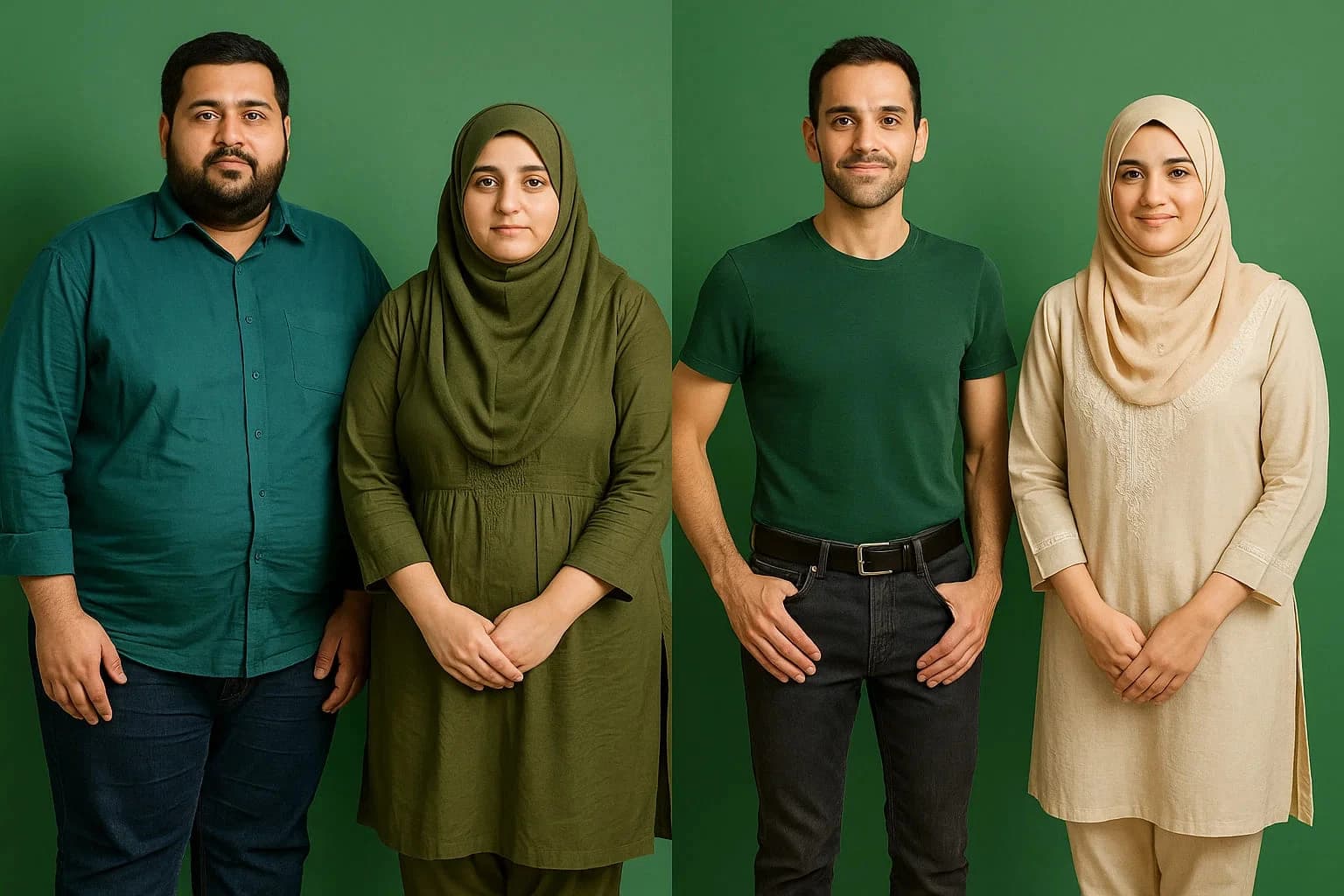© 2025 Roz UpdatesbyTETRA SEVEN

* All product/brand names, logos, and trademarks are property of their respective owners.
In recent years, Pakistan has witnessed a quiet yet powerful revolution—led not by politicians or policymakers, but by women stepping into the spotlight of fitness and wellness. Across cities like Lahore, Islamabad, and Karachi, women-led fitness communities are redefining what health, strength, and empowerment look like in a society often constrained by tradition. These communities are not only helping women stay physically fit but are also creating safe, supportive spaces where women uplift one another, build confidence, and challenge outdated norms.
Historically, female participation in fitness in Pakistan was limited by cultural barriers, societal expectations, and a lack of women-only spaces. Going to the gym—or even discussing personal health—was considered taboo for many women, especially in conservative households. But that narrative is changing rapidly. A new wave of fitness pioneers—trainers, entrepreneurs, influencers—are showing that women can lead, grow, and thrive in an industry once dominated by men. Fitness startups like AimFit and Reshape have set the pace, offering female-centric fitness classes, wellness programs, and entrepreneurial opportunities.
This blog explores the rise of these women-led fitness communities in Pakistan: how they started, what drives them, and what challenges they face. From the grassroots initiatives in urban neighborhoods to digital platforms bringing fitness to living rooms across the country, we’ll uncover the ways in which these movements are not only transforming bodies—but reshaping mindsets. For young girls, working mothers, and women from all walks of life, these communities are becoming catalysts for change—empowering them to take control of their health, their confidence, and their futures.
For decades, the idea of women participating in structured fitness activities in Pakistan was overshadowed by social stigma. Exercise was often associated with masculinity, and many women, especially in conservative households, were discouraged from engaging in public or group fitness routines. Modesty, family obligations, and fear of judgment kept countless women from even considering a gym membership. But over time, small shifts began to occur—thanks to increased education, urban exposure, and the global wellness wave. Women began to view fitness not just as a luxury, but as a necessity for mental and physical health.
The turning point came in the late 2000s and early 2010s, with the emergence of the first women-only gyms and aerobics studios in major cities. These safe, all-female environments allowed women to exercise without fear of harassment or judgment. Around the same time, social media played a pivotal role in normalizing fitness for women. Pakistani influencers began sharing workout routines, transformation journeys, and wellness advice, fostering a more open conversation around female health. The launch of community-centric platforms like AimFit marked another major milestone—offering structured classes, virtual coaching, and wellness education designed specifically for women.
Women like Mahnaz Durrani, Sana Durrani, and Zehra Chatoor paved the way by advocating for women's physical health and launching early fitness initiatives. These pioneers understood that fitness was about more than just weight—it was about strength, confidence, and autonomy. They mentored others, created inclusive spaces, and pushed back against societal constraints. Today’s leading female trainers and fitness entrepreneurs owe much of their success to these trailblazers who took the first bold steps in a resistant culture.
In Pakistan’s male-dominated fitness industry, startups like AimFit and Reshape have emerged as bold, female-driven disruptors. Founded by enterprising women, these platforms cater specifically to the needs of Pakistani women—offering everything from strength training and HIIT to yoga and dance-based cardio. AimFit, in particular, has become a trailblazer by integrating both physical and digital fitness experiences, providing not only in-studio classes in Lahore and Islamabad but also virtual workouts accessible across the country. These businesses aren't just about fitness; they’re about creating leadership roles, employment opportunities, and networks for women in the wellness space.
The significance of women-only fitness environments in Pakistan cannot be overstated. In a culture where public spaces can often feel unwelcoming or unsafe for women, these fitness studios provide a sanctuary. Here, women of all ages, backgrounds, and fitness levels come together without the pressure of judgment or the need to conform. Whether wearing hijabs or gym tights, attendees are accepted and encouraged. These inclusive spaces foster a sense of freedom—freedom to move, express, sweat, and grow.
What truly distinguishes these women-led fitness communities is their deep-rooted sense of connection. These aren't just gyms—they are support systems. Members often stay after class to talk, celebrate milestones, and share challenges. Many communities also offer mentorship programs where experienced members or trainers help guide newcomers. Social media groups, WhatsApp circles, and in-person meetups foster continuous engagement, making fitness not just a routine but a lifestyle anchored in mutual encouragement.
The rise of digital fitness in Pakistan has opened new doors for women who previously had limited access to wellness opportunities. With the help of mobile apps and virtual class platforms, women can now join fitness sessions from the comfort and privacy of their homes. Startups like AimFit, TotalBodyTransform, and Studio X have expanded their reach through live-streamed classes and on-demand workouts, allowing women from various socioeconomic and geographic backgrounds to participate without commuting or investing in expensive gym memberships. These virtual offerings are especially valuable in a country where women’s mobility can be constrained by cultural or logistical barriers.
Fitness influencers play a key role in promoting health awareness and making wellness feel relatable. Pakistani women like Mahnoor Sheikh, Rabia Shahzad, and Shanzay Sheikh are using Instagram, YouTube, and TikTok to share home workouts, wellness routines, and motivational tips tailored to local audiences. Their authentic, culturally conscious content makes fitness feel attainable and non-intimidating. These influencers serve as role models, especially for younger girls and first-time exercisers, by demonstrating that fitness is not about perfection—it’s about progress and self-respect.
Perhaps the most transformative impact of digital fitness is its outreach to stay-at-home mothers and rural women. With a smartphone and internet access, women in remote or conservative communities can join fitness programs that respect their privacy and routines. WhatsApp-based coaching, Facebook fitness groups, and low-bandwidth platforms help overcome infrastructure limitations. These tools offer a lifeline to women who might otherwise remain disconnected from wellness resources, empowering them to prioritize their health on their own terms.
Despite notable progress, women-led fitness communities in Pakistan still face significant hurdles. Cultural stigma remains a major barrier—many women encounter resistance from families or communities that view fitness as frivolous, or worse, inappropriate. Access to funding is another obstacle. Female entrepreneurs in the wellness space often struggle to secure capital due to gender biases and a lack of investor interest in the health and fitness sector. Additionally, there's a glaring absence of public policy that supports women's wellness, from inadequate gym infrastructure to a lack of educational campaigns around women's health and physical activity.
Yet, amid these challenges, inspiring stories of resilience and impact abound. Female trainers, many of whom started with a passion for wellness, have turned their skills into thriving businesses—employing others, hosting workshops, and even launching merchandise. AimFit’s female-led model, for instance, has created jobs for hundreds of women, from trainers and nutritionists to marketing and tech roles. These fitness ventures aren’t just transforming lives physically—they’re offering women financial independence and professional recognition in a field that once excluded them.
Looking ahead, the future of women-led fitness in Pakistan depends on strategic investment and support. Government policies promoting women’s health, subsidies for female-led wellness startups, and fitness education in schools could accelerate growth. More inclusive infrastructure—like women-only public parks or community wellness centers—would ensure broader access. The use of regional languages in digital fitness platforms and outreach campaigns could further bridge rural-urban divides. By aligning education, entrepreneurship, and inclusivity, Pakistan has the potential to become a leader in female-centric wellness across South Asia.
The rise of women-led fitness communities in Pakistan is more than a health trend—it’s a social movement redefining empowerment, leadership, and inclusion. In a society where women’s spaces have long been restricted, these fitness communities offer something revolutionary: a safe, affirming environment where women can grow stronger not only in body but also in confidence, purpose, and solidarity.
From pioneering startups like AimFit to grassroots community efforts, women are creating fitness ecosystems that address both cultural sensitivities and practical barriers. Through these spaces, they’re challenging long-standing norms, mentoring one another, and proving that health and wellness are not luxuries but rights—accessible, necessary, and transformative. Whether it’s through a dance class in a Lahore studio, a virtual yoga session in Multan, or a home workout in Gilgit, these initiatives are reaching across geography and demographics to uplift Pakistani women.
As these communities continue to thrive and expand, they offer a compelling blueprint for inclusive development—where wellness becomes a collective, community-driven mission. The time to invest in women-led fitness is now, because when women rise, communities rise with them.

9 October 2025

23 September 2025
No comments yet. Be the first to comment!